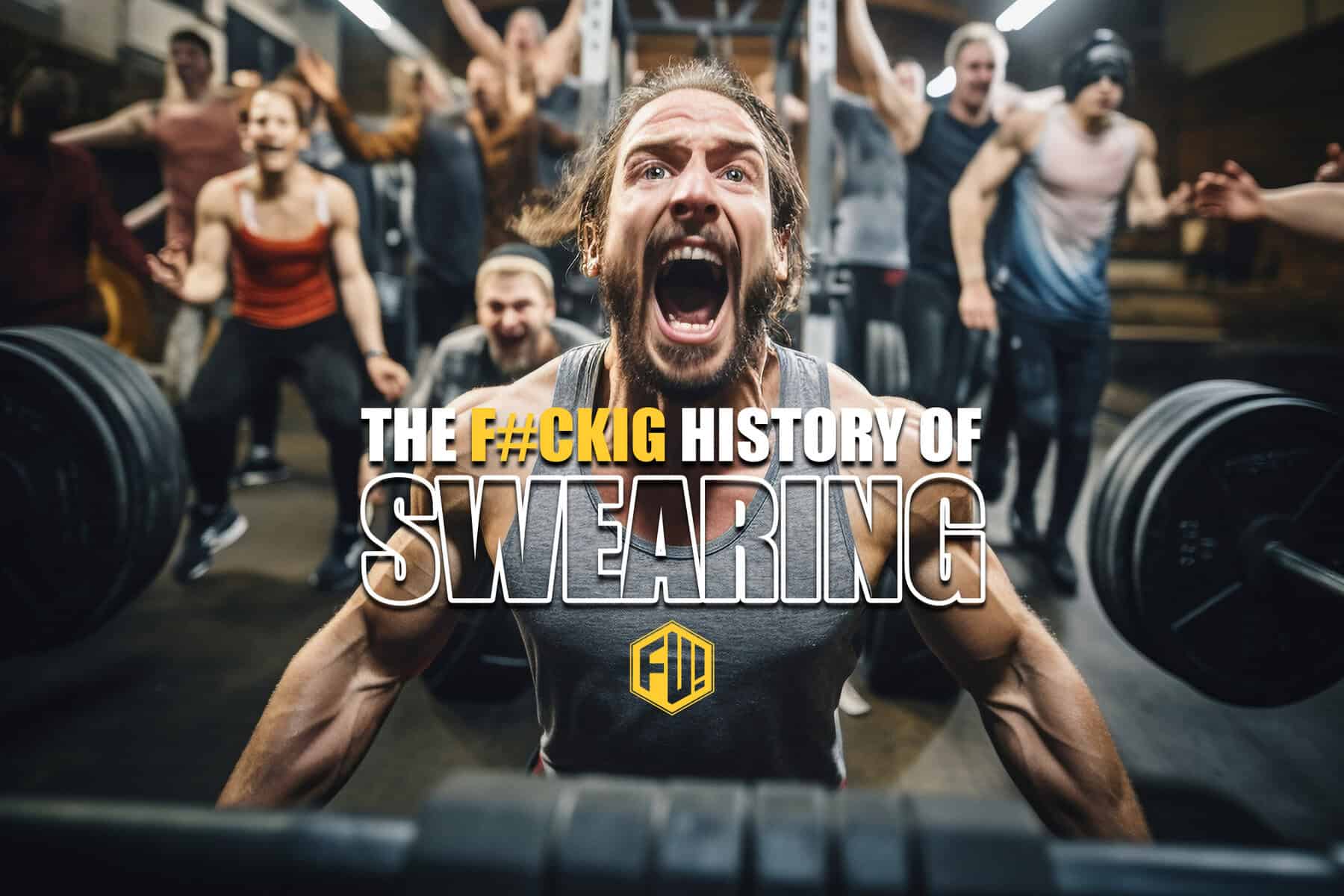The Colorful History of Swearing: From “F#ck You” to Fitness Union!

Let’s face it, we all swear sometimes. Whether it’s a stubbed toe or a frustrating workout, a good swear word can be a powerful emotional release. But have you ever stopped to wonder where these colorful words come from? Why do we use them, and what makes a swear word a swear word? MAKE SURE TO READ OUR FINAL NOTE.
The Roots of Rudeness:
There’s no single origin story for swearing. However, linguists believe some swear words might be rooted in:
Taboos: Words associated with bodily functions, sex, or religion were often considered taboo and became swear words.
Anger: Certain sounds, like the explosive “F” sound, are naturally associated with strong emotions and became swear words.
Insults: Words that directly attack someone’s character or heritage could become swear words.
The Evolution of Expletives:
Swear words are constantly evolving. What might have been shocking centuries ago could be considered mild today. Here’s a fun fact: the word “heck” originally referred to the Christian underworld, but has softened over time.
The Fitness Union Phenomenon:
Fitness Union uses a playful version of a common swear word, but with a crucial difference. FU! in our context doesn’t stand for the traditional expletive. Instead, it’s an abbreviation for Fitness Union! It’s an energetic expression of encouragement, a battle cry to take control of your fitness journey and achieve your goals.
Why Swear, Though?
Swearing can serve several purposes:
Emotional Release: Swearing can be a way to vent frustration or express pain.
Emphasis: Sometimes, a well-placed swear word can add emphasis to a statement.
Social Bonding: Swearing can be a way to connect with others, especially in informal settings.
Humor: Swear words can be used for comedic effect, although this depends on the context.
Swearing and Intelligence: An Interesting Twist
Here’s a surprising fact! Studies have shown a correlation between swearing and intelligence. In the words of Timothy Jay, a psychology professor at Massachusetts College of Liberal Arts and a veteran scholar of swearing, the advantages of cursing have only been illuminated in the last twenty years. This is thanks to leaps in our understanding of the brain and emotions, along with more refined techniques for studying brain structure. This suggests that swearing isn’t a sign of a limited vocabulary, but rather an ability to use language creatively and effectively, even in unconventional ways.
The Bottom Line:
Swearing is a natural part of human language, and its history is fascinating. However, it’s important to be mindful of the context when using swear words. Fitness Union uses a clever abbreviation to create a positive and empowering message. Remember, it’s the intention behind the word that matters most.
So, the next time you feel the urge to let out a good swear word, take a moment to appreciate the long and colorful history of these words. And if you’re looking for a supportive and energetic community to help you on your fitness journey, remember, Fitness Union is here for you (with a playful FU! for encouragement, not a traditional swear word)!
FINAL AND MOST IMPORTANT NOTE:
The Bible clearly condemns language meant to belittle, humiliate, or attack others. But what about uttering strong words in pain, like when we accidently walk into a pillar or road sign? The Bible remains silent on this specific point.
It seems God is less concerned with the particular words themselves and more with our intent behind them.
Words hold great power. We should strive to use them in a way that respects God and uplifts others. Often, we fall short and use them to inflict harm. That’s what truly matters to God.
In essence, the words themselves aren’t the issue. They are just tools. Any tool can be misused, and any word can be hurtful if used to tear someone down. However, simply placing certain words on a forbidden list doesn’t make them inherently sinful. It’s the context, timing, and purpose behind our words that determines their goodness or badness.
Quick and CLEAR example: “That piece of steak was F#cking great!” vs “I hope you die, I hate you!”… I think it’s extremely clear what is evil and what is not!



